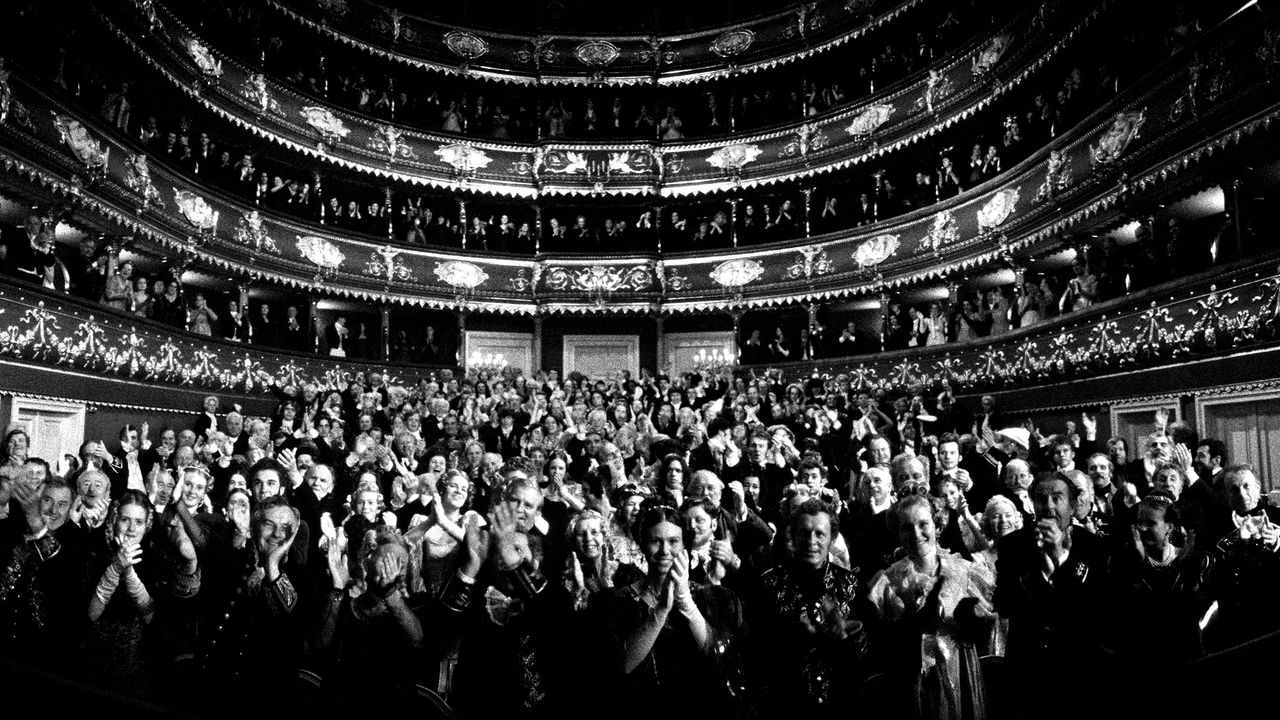Somewhere between a film’s final scene and the exalted audience’s first clap at either the Venice or Cannes film festivals, cinema loses its dignity.
Somewhere between a film’s final scene and the exalted audience’s first clap at either the Venice or Cannes film festivals, cinema loses its dignity. We have entered a standing ovation arms race. What began as a fleeting, instinctive gesture has become a marketable metric as critics, publicists, and distributors now cite the length of a standing ovation as if it were a Rotten Tomatoes score. “A 12-minute standing ovation at Cannes” has become shorthand for imminent awards glory. But like so much in Hollywood, it is prone to distortion. While a long standing ovation can signal a cultural phenomenon in the making, it more often promises triumph and delivers The Paperboy (2012), which, after a reported 15 minutes of cacophonous, seal-like clapping, went on to recoup less than half of its budget. Not that anyone has ever gone broke underestimating the taste of the American public.
This is not applause. It is Crassus defeating Spartacus and demanding a Roman triumph, spectacle inflated beyond its spoils. Once a fleeting gesture of admiration, it has evolved into an endurance test for the rotator cuff. The standing ovation is no longer a punctuation mark, it is the main event. The film ends and the ritual begins. People stand. People clap. Like a drum circle with a nervous breakdown, they do not sit. They do not stop. They simply continue, as if choreographed by Busby Berkeley on benzos. At the Venice Film Festival 2025, we reached a record-breaking 23 minutes following the premiere of The Voice of Hind Rajab. Who times it? Who breaks it? At some point it must be medically unsafe. By minute 12 of percussive absolution, you’re not expressing admiration, you’re begging for release.
This year’s Frankenstein cues the lanky antipodean heartthrob in tears. Jacob Elordi’s cheekbones glisten damp—out of joy? Or because even with the most ambitious preparation he had run out of rehearsed facial expressions? Cycling through earnest humility, pious gratitude, conspirative glances to costars and directors. Who could blame him? There is an almost Lynchian quality to be clapped at by a crowd of Botoxed strangers in finery set against the velvet grandeur of a Venetian cinema. An almost existential punishment.
Of course, it’s not really about the film. The standing ovation, like everything now, is content. “Blonde Gets 14-Minute Standing Ovation in Venice.” “The Brutalist Debuts With 13-Minute Standing Ovation.” “Twelve-and-a-half Minute Applause for Thinly Veiled Metaphor About Grief and Pickled Fish.” It’s become the fresh barometer of cultural worth—a mechanical fugue of admiration untethered from actual response. Some of the loudest ovations are for films that won’t survive their festival circuit. With critic and audience tastes drifting apart, one wonders which way clap drifts. One thing is for certain, Dwayne “The Rock” Johnson got his 15 minutes in Venice this week, driven by the predictable combination of not only a body transformation but also being a popcorn actor in a high-brow, close-to-home film, The Smashing Machine.
Activism is now hardwired into the marketing strategy, giving the ovation an even murkier dimension. Films are applauded not just for their quality, but for their cause. Climate grief. Postcolonial reckoning. Gender anguish in cool weather. These are all now part of the moral choreography, often understandably so. But what does the chant signal about the cause? Is 15 minutes too miniature for a film about injustice? Is 17 too long for something about emotional boundaries?
Meanwhile, the actors are trapped. Do they cry? Smile? Take the little bow? The only thing they can’t do is sit down. The etiquette is muddy and faintly ecclesiastical. Standing ovations are meant to be received with the pained humility of saints accepting their stigmata. One cannot wave them off. One must endure them.
It is an arms race. Frozen features for the clappers who fear to be the first to stop. A minute of applause is long in the public chokehold of collective obligation. No one wants to be sent to the gulag for being the first to stop clapping.
A gesture detached from sentiment, performed out of collective obligation, like singing hymns in a religion one doesn’t believe in. Oblivion awaits.

COMMENTS